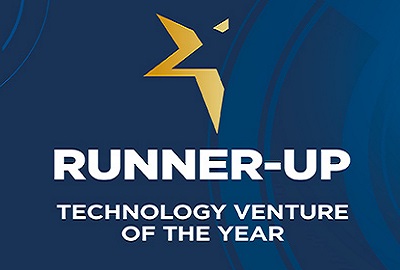Artificial Intelligence and online courts |
Authors / contacts: Karim Derrick
Back in November 2019, before the world knew about Covid-19, before workplaces globally were disrupted and before the huge shift to online working, Richard Susskind, IT Adviser to the Lord Chief Justice of England and Wales, published a book titled Online Courts and the future of Justice.
Susskind, for those that don’t know, has been writing about the likely disruption of the delivery of legal services by technology, arguably for decades. In fact, Susskind inspired Richard West and others here at Kennedys to produce what was the toolkit and KLAiM suite of products which has gone onto become Kennedys IQ.
Whilst most of Susskind’s early work was about the likely transformation of legal services, latterly he has been focusing on the likely transformation of the courts, and his most recent book, rather precipitously, looked at the opportunity for online courts.
He often quotes the Organisation for Economic Co-operation and Development (OECD) who report that more than four billion people live beyond the protection of the law and courts. A staggering figure in itself, and in some countries, the backlogs in the courts are astonishing. For example, Brazil pre-Covid, had over 100 million cases pending in the civil courts – and they’re not alone.
One of Susskind’s suggestions is that it would make sense to offer litigants a less perfect, but more conclusive, alternative of decisions arrived at by a machine designed to mimic the decision-making processes of previous similar cases. Without the involvement of people or physical courts. I am of course massively simplifying hundreds of pages, but it is what it essentially boils down to.
Pre-Covid this was a bold statement, and still is, to some extent, however, with the huge changes in working patterns we’ve all had to adapt to, and the ubiquitous ‘new normal’ – what really is the future of court systems globally in a post-Covid world?
The planet has been busy
So, in consideration of the future of courts post-Covid it is perhaps worth a round-up of what has been going on across the planet in respect of online courts:
- One story, which has literally swept across the planet has been the tragedy around George Floyd and the nature of his violent death. Digital video is how George Floyd was captured being killed, and it was by video that Derek Chauvin, the former police officer, made his first court appearance as murder suspect in June from a maximum-security prison. It was also during this court video appearance that Judge Jeannice Reding set his bail at $1m.
- Staying in the US, their Covid-19 stimulus package included specific provision for federal judges to use teleconferencing, and the US Supreme Court conducted hearings by telephone for the first time.
- In India the Supreme Court began hearing all cases via an app called Vidyo on 23 March.
- In Spain the first internet trial was held in May.
- At home here in the UK, rules were changed to require all evidence to be submitted to the Supreme Court digitally. The Economist reported, “A branch of government built on precedent is now procedurally breaking it”, this will surely reshape the judicial system post Covid-19.
- A High Court trial in London which was brought by the Republic of Kazakhstan over $530m claims brought against Moldovan business man and a US bank were conducted on the video platform Zoom and live streamed on YouTube.
- A new video platform, the Cloud Video Platform (CVP), enabling more remote cases to be heard safely and securely is being rolled out to the civil and family courts, ministers have confirmed. It follows the successful implementation of the CVP across 60 crown courts and 93 magistrates’ courts. The technology has so far been used in 3,600 Crown Court hearings and more than 7,000 overnight remand cases heard by magistrates.
But has it been a success?
There are a number of immediately obvious advantages to online courts. It makes justice cheaper and more accessible, digital conference rooms can be easier to attend than physical ones, and the most obvious in the context of this year is that remote proceedings prevent the spread of disease.
However, there are also downsides that need to be considered. Slow internet and poor hardware can negate the time and expense savings made. Human-rights advocates argue that delivering harsh sentences via video is inhumane, and yet in May, in Singapore, a man received his death sentence by Zoom.
Children bursting in on a working parent can raise a simple eyebrow, less so if it’s disrupting a high court hearing, and retaining a sense of propriety, even if you are perched in the guest room is important. In the US, Judge Dennis Bailey of the Weston Bar Association in Florida commented that “One male lawyer appeared shirtless and one female attorney appeared still in bed…”
Initial findings from the UK suggest that civil cases, those without juries, work better online. In June the Civil Justice Council published a report surveying over 1,000 lawyers and members of the public which had taken part in online cases, 71.5% said they had positive experience. But, other aspects of the law are finding it trickier. In family courts, judges report difficulties in handling delicate matters such as child custody, and in the criminal courts it is almost impossible for jurors not to be influenced by outsiders when they are attending from their kitchen table!
So, there is a lot of evidence of courts being taken online, but less evidence so far of machines making any decisions…
However, if we look at what is going on in China at the moment, we perhaps start to see the future. China has, of course, managed Covid-19 with almost ruthless efficiency so it is interesting to see how they are moulding their justice system, and you won’t be surprised to hear that their use of technology is racing ahead.
Data – the fuel for Artificial Intelligence
Artificial intelligence, while often thrown around as the wonder-kid of tech, is only ever going to be as good as the data it is fed. Volume, quantity and accuracy of data are key to it being able to learn and perform as needed, something that China knows.
As of February 2020, there were over 81.5 million judgments and other judicial documents on the Supreme People’s Court (SPC) China Judgments Online, representing the world’s largest digital repository of judicial information. It’s been made possible by the SPC’s centralised big data management and service platform, which connects every court in China, which is around 3,520 courts, 9,277 tribunals and 39 maritime courts).
Three internet courts in Hangzhou, Beijing and Guangzhou, set up in 2017-2018, are the first courts in China where the entire litigation process can be conducted online, including filing and service of documents, pre-trial mediation, collection and presentation of evidence, preservation of assets, the trial, judgment, enforcement, appeal and other processes.
More broadly, across the whole country a ‘mobile court’ app can now be downloaded on WeChat, China’s most popular social media app. It uses facial recognition technology to authenticate the parties. They can file a case directly and communicate directly to the judge by sending text and audio messages and upload evidence on the app. The parties and the judge can then log onto the app at the same time, undertake the pre-trial mediation, complete the e-signing of the mediation settlement (if successful) and deliver the judgment on the app.
A national e-evidence platform based on blockchain technology has also been established, linking courts in 22 provinces and municipalities, and the internet courts in China have also been experimenting with AI tools to assist with the adjudication of basic, non-complex cases, real-time recording and transcription of trial proceedings as well as the provision of legal information to the parties.
But AI throws up a host of questions that need to be carefully considered and thoroughly addressed, before it becomes the magic wand by which we clear global court backlogs. You can’t successfully implement AI until you know exactly what data it is you’re trying to capture, and herein lies the nub of the issue, expressed well by Judge Wendy Chang of the LA Superior Court, “In my experience in judging, especially with a self-represented litigant, most of the time people don’t even know what to tell you. If an automated system builds its decision based on the information it receives how are you going to train it to look for other stuff? For me that’s a very subjective, in-the-moment thing.”
Inevitably, when dealing with AI, most discussions come back round to the issue of bias, there is perhaps, rightly, no other domain where there is so much sensitivity around the topic. But it’s worth remembering that it may not be particularly hard to build an AI-based system that delivers better results than humans. There’s plenty of evidence of all kinds of human bias built into current justice systems. In 2011, for instance, a study of an Israeli parole board showed by the parole board delivered harsher decisions in the hour before lunch and the hour before the end of the day.
2020 has been a monumental year for so many reasons, it may still yet be seen to be the year that online courts finally gain real momentum. However, even as we were finalising this article the Chancellor pledged close to £2bn to tackle the courts backlog, but failed to address the court modernisation programme in the spending review. While Covid-19 has undoubtedly played a considerable part in launching justice systems around the world into a new digital era, it is still down to individual governments, justice systems and businesses to hone the technology to meet the demands and nuances of online court life.
Related news and insights
Artificial Intelligence: exploring risks and rewards
Karim Derrick of Kennedys IQ explores the risks and rewards as the sector looks to an AI future.
Assessing the impact of the 17th Edition of the JCG on OIC Claims
The highly anticipated 17th Edition of the Judicial College Guidelines (JCG) has begun to reach recipients. Let’s delve into the standout updates from this edition and examine their potential implications for Official Injury Claim (OIC) claims.
Award winning Kennedys IQ
Last week, we had the honour of attending the prestigious ‘British Legal Technology Awards 2023’ as an award finalist.

Artificial Intelligence: exploring risks and rewards
Karim Derrick of Kennedys IQ explores the risks and rewards as the sector looks to an AI future.

Assessing the impact of the 17th Edition of the JCG on OIC Claims
The highly anticipated 17th Edition of the Judicial College Guidelines (JCG) has begun to reach recipients. Let’s delve into the standout updates from this edition and examine their potential implications for Official Injury Claim (OIC) claims.

Award winning Kennedys IQ
Last week, we had the honour of attending the prestigious ‘British Legal Technology Awards 2023’ as an award finalist.



